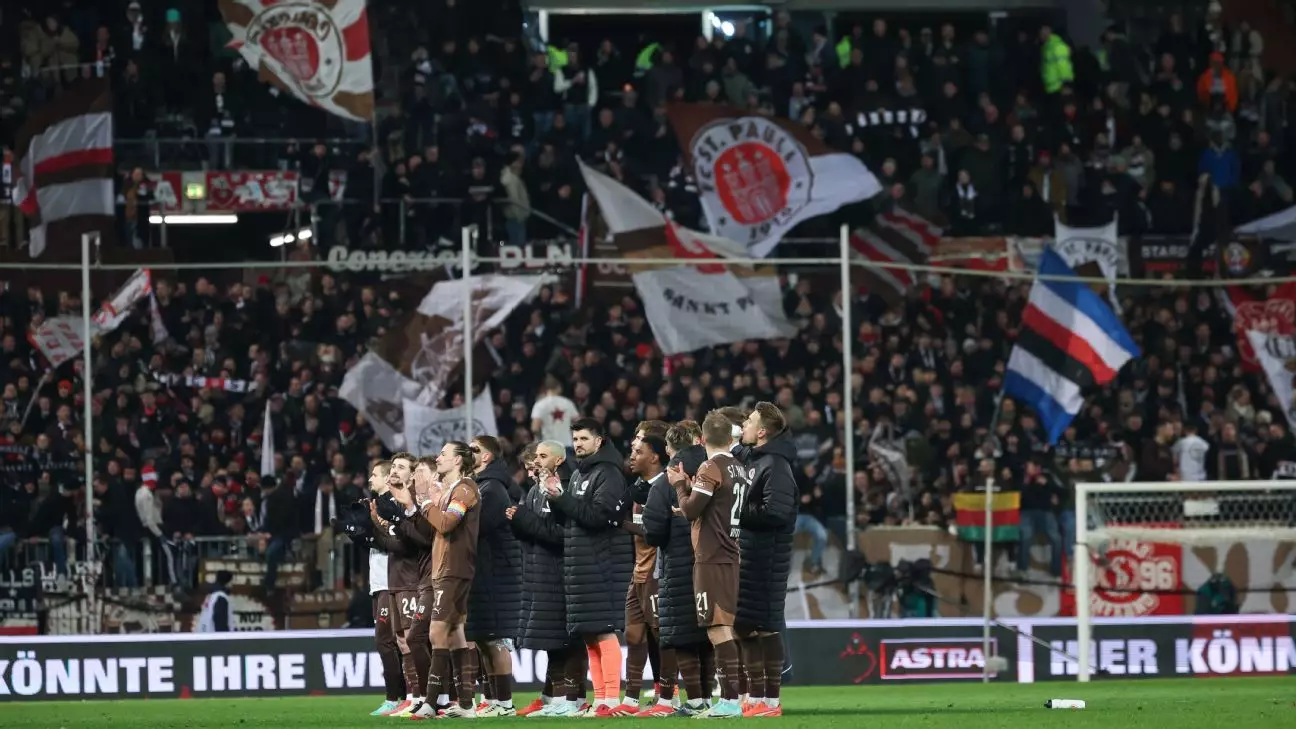In a landmark achievement for football and fan engagement, supporters of FC St. Pauli have successfully raised over $29.1 million for a majority stake in their beloved Millerntor Stadium. This remarkable initiative marks a significant milestone, as it represents Germany’s first fan cooperative in professional football. The sheer scale of involvement—over 21,000 participants eager to invest in their club—illustrates a vibrant community willing to stand up and take ownership of their sporting landscape.
The fundraising journey spanned five months and culminated in a thrilling finale just before the deadline. Responses poured in, particularly in the closing hours, as fans rushed to secure their shares. For a price of $917 ($850), respondents not only purchased stakes in the stadium but also entered a lottery featuring exciting prizes, including dinners with team captain Jackson Irvine and exclusive club merchandise. What seems like a mere investment turns out to be a powerful statement, showing how fans can generate significant financial support through collective action.
Strategic Opportunities for the Club
With this new financial backing, St. Pauli is poised to decrease its financial obligations more rapidly than anticipated. Commercial director Wilken Engelbracht’s assertion about unlocking new avenues for the club rings true, as this cooperative approach will likely provide opportunities for sustainable growth and stability. Securing a majority stake in the stadium is more than just financial relief; it’s about creating a solid foundation that aligns with the club’s values and ambitions.
Notably, esteemed Bayern Munich figure Uli Hoeness, who previously came to St. Pauli’s aid during tough financial times, is now among the newly minted shareholders. This is a testament to the respect and admiration that the club commands, transcending rivalries and highlighting a sense of unity in the football community. It showcases how football can be a collective effort, where the future is shaped not just by wealthy investors, but by passionate supporters.
A Focus on Sustainable Success
St. Pauli did not merely achieve financial success; they managed to infuse their ethos of community and inclusiveness into the heart of their club’s operations. Now that they have secured this backing, the vision does not stop here. As club president Oke Göttlich emphasized, the aim is to harness this momentum to achieve another vital goal—securing Bundesliga survival. Positioning themselves three points above the relegation zone, the urgency and excitement reverberate through the organization and its fan base alike.
The club plans to present the final results of the fundraising phase at the upcoming general meeting. Such democratic processes not only fortify trust among stakeholders but also empower fans, creating a culture built on transparency and shared goals. The structural changes brought by the cooperative are more than operational; they are a cultural renaissance, fostering a deeper connection between the team and its supporters, which could redefine the essence of football allegiance.
In this age of commercialism, where big-money deals overshadow grassroots movements, St. Pauli’s initiative stands as a powerful reminder that community-driven football can thrive, giving hope to clubs that are willing to embrace their supporters as integral stakeholders.

